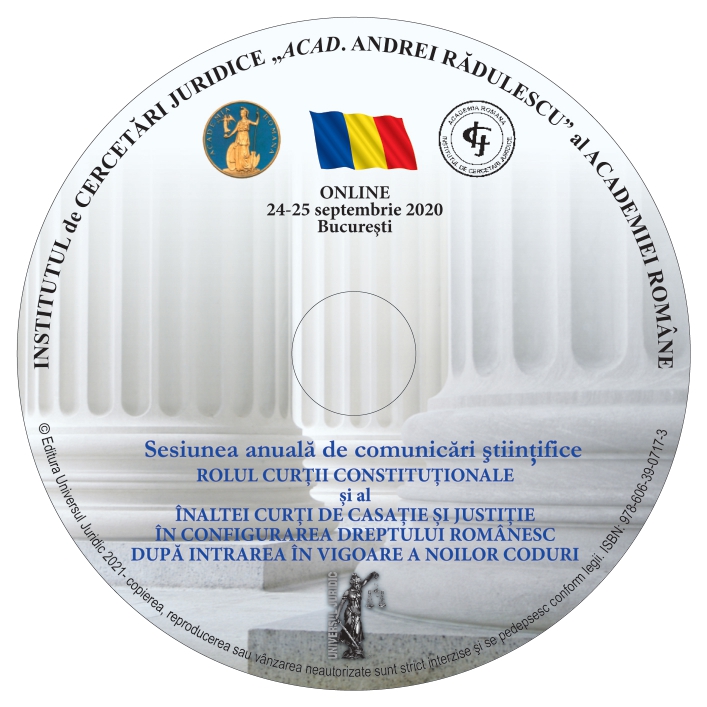Jurisprudența Curții Constituționale și a Înaltei Curți de Casație și Justiție în materia legalității administrării probelor în procesul penal
Jurisprudence of the Constitutional Court and the High Court of Cassation and Justice on the Legality of the Administration of Evidence in Criminal Proceedings
Author(s): Nadia Zlate
Subject(s): Law, Constitution, Jurisprudence, Criminal Law
Published by: Universul Juridic
Keywords: absolute nullity; relative nullity; witness hearing; right of defense; technical supervisión;
Summary/Abstract: The Constitutional Court and the High Court of Cassation and Justice have a very important role in crystallizing the jurisprudence of national courts. Following the decisions of the Constitutional Court admitting exceptions of unconstitutionality, the legal practice of the courts had to change in certain procedural aspects, even if the legislator did not intervene to amend legal texts declared unconstitutional, such as the legal impossibility of before the beginning of the criminal investigation, the criminal investigation bodies may also order the performance of fiscal controls, in order to comply with the constitutional provisions of art. 16, 21 and 24, at the hearing of the minor aged between 14 and 18 it is mandatory to summon his parents or, as the case may be, the guardian, curator or person in whose care or supervision the minor is temporarily, as well as the general social assistance directorate and protection of the child from the locality where the hearing takes place, the absolute nullity of the evidence obtained as a result of the technical support offered by the Romanian Intelligence Service for the execution of the technical supervision mandates. The High Court of Cassation and Justice influenced the jurisprudence of national courts on the legality of evidence even if it was by non-binding decisions, for example regarding the legality of technical-scientific findings, defining urgency in relation to the need for fair prosecution guidance in carrying out the activity of criminal prosecution, as regards the sanction applicable if the criminal prosecution bodies did not proceed to record the hearing of the suspect, the possibility of hearing the judge, as a witness in a trial whose object is to commit an offense in connection with the deliberation process, regarding the way in which together with the other members of the panel they decided on the solution etc.
- Page Range: 453-461
- Page Count: 9
- Publication Year: 2020
- Language: Romanian
- Content File-PDF

